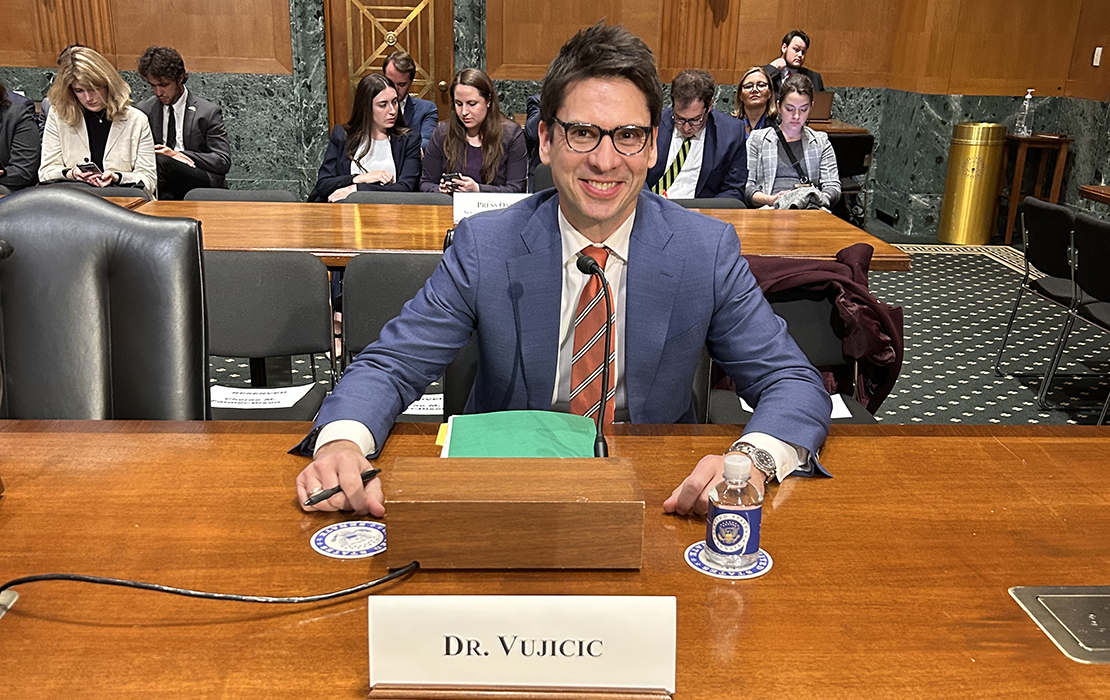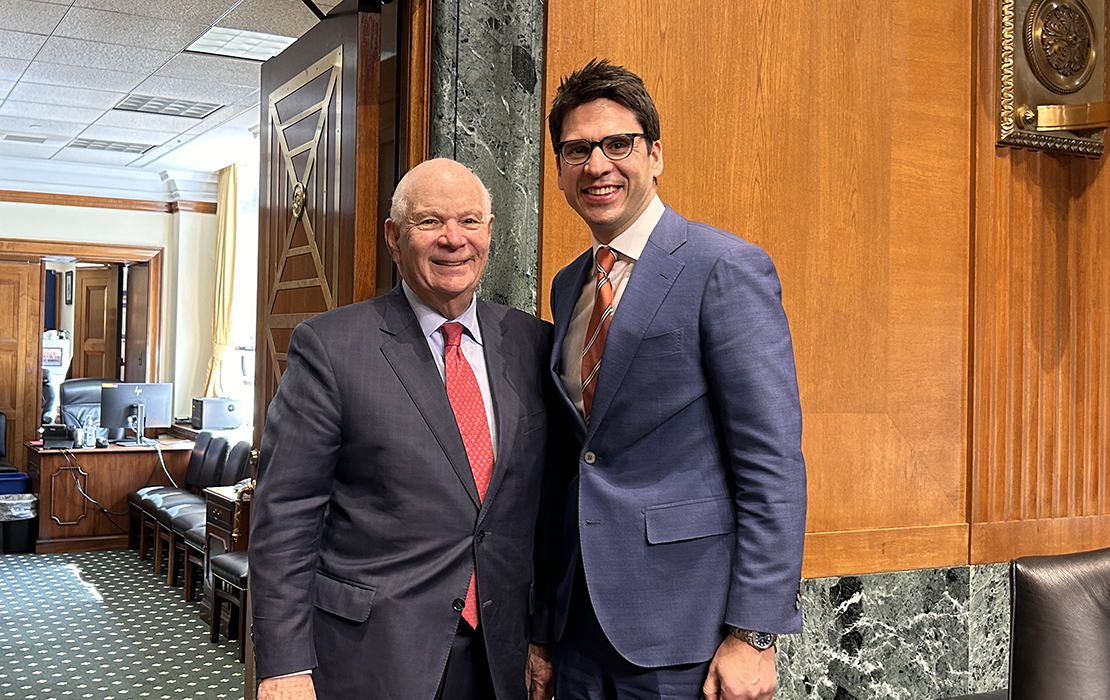ADA chief economist presents testimony in Senate hearing in order to contribute to health care solutions
Vujicic one of four panelists for hearing on ‘An Oral Health Crisis: Identifying and Addressing Health Disparities’

During a hearing in the U.S. Senate, Marko Vujicic, Ph.D., ADA chief economist and vice president of the Health Policy Institute, highlighted what he called “one point and one point only.”
He said, “The situation we see today when it comes to our nation’s oral health is a result of policy choices we have made along the way. Namely, for children, our policy approach treats dental care as core health care, as an essential service. For adults, and seniors, it does not. When it comes to health policy in America, we disconnect the mouth from the body when you become an adult.”
Dr. Vujicic was one of four panelists invited to submit written testimony to and speak during a Subcommittee on Health Care of the U.S. Senate Finance Committee hearing in Washington, D.C. The meeting was titled “An Oral Health Crisis: Identifying and Addressing Health Disparities.”
The hearing, Dr. Vujicic said, was a “a testament of not only the important link between oral health and overall health and well-being, but a recognition that there is a need for action. We can and should do better when it comes to our nation’s oral health.”
The subcommittee, chaired by Sen. Ben Cardin, D-Md, featured Dr. Vujicic as well as two ADA members: Warren A. Brill, D.M.D., owner of Eastpoint Pediatric Dental Associates in Baltimore, and Cherae M. Farmer-Dixon, D.D.S., dean and professor of the School Of Dentistry at Meharry Medical College in Nashville. The fourth member of the panel was Jonathan P. Forte, president and CEO of RiverStone Health in Billings, Montana.

Dr. Vujicic’s written testimony focused around three main themes: the state of oral health in America; the policy choices the country has made along the way; and considerations as we move forward, using evidence-based insights researched and compiled by the HPI and ADA as a whole.
It covered several important aspects: trends in oral health over time, how they differ by income and race, as well as challenges specific to rural areas, and some considerations for policy makers as they look ahead to solutions.
“Every 15 seconds in America, someone shows up at a hospital emergency department because of a dental issue,” Dr. Vujicic wrote. “The estimated 2.1 million emergency department visits for dental conditions cost the U.S. health care system $2.7 billion each year, with Medicaid accounting for the largest share of this spending. This is an example of inefficient spending that could be avoided if more Americans had access to a dental home for routine care and prevention.”
Investing in oral health also impacts the local economy, according to Dr. Vujicic.
“Each dental practice is estimated to contribute $2.3 million annually to the local economy when the various direct and indirect effects are taken into consideration,” he said. “Overall productivity losses associated with untreated oral disease were estimated to be $45.9 billion per year in the U.S., much higher than any other country.”
During his oral testimony, Dr. Vujicic said that research shows that improved oral health leads to cost savings on the medical care side for certain conditions such as diabetes, heart disease and pregnancy.
He said, “Three in ten low-income adults report that oral health issues limit their job prospects. These data suggest that we are paying an economic penalty for our policy choices along the way. Put another way, aside from improving people’s lives, there is an economic and fiscal dividend associated with improving our nation’s oral health.”
He closed by offering to work with Congress to utilize data-driven insights to drive oral health policy decisions needed to reduce oral health disparities.
“Our policy choices have also had repercussions that extend beyond the mouth,” Dr. Vujicic said. “On behalf of the American Dental Association, I thank you once again for your commitment to this important area of health policy and for allowing me the chance to share some data-driven insights with you today.”



